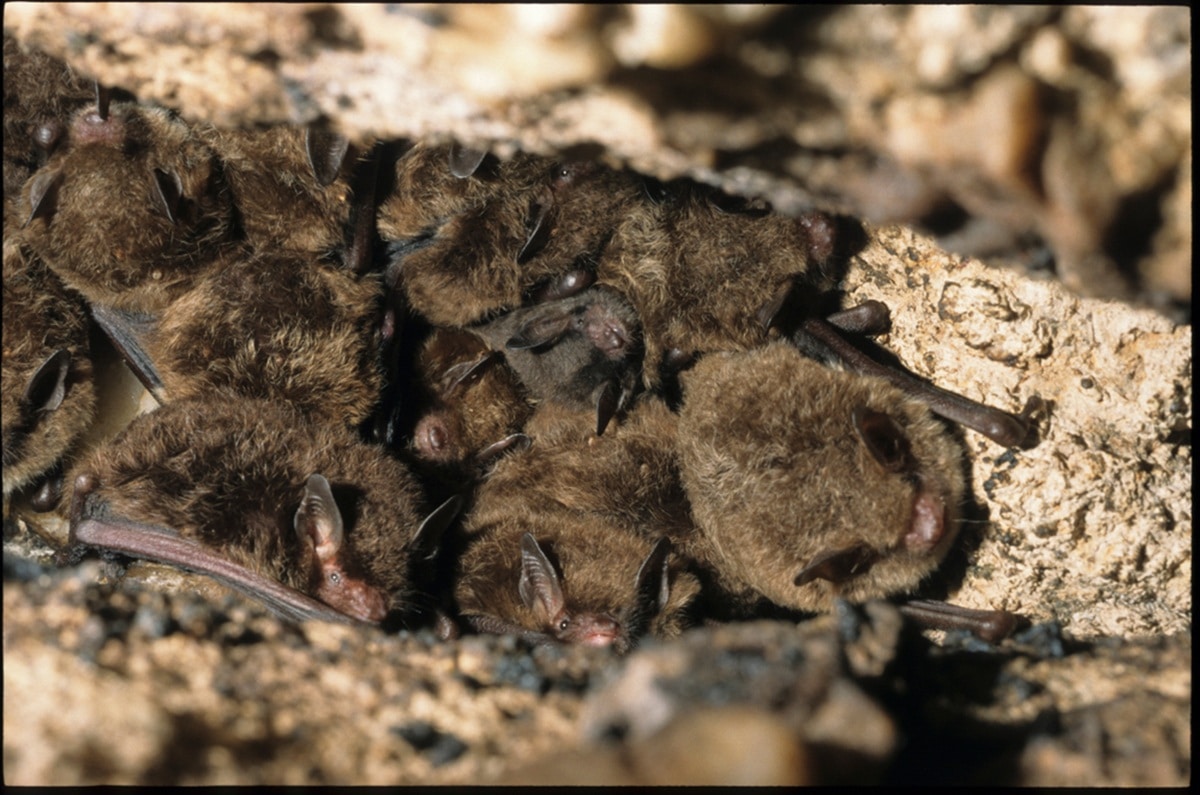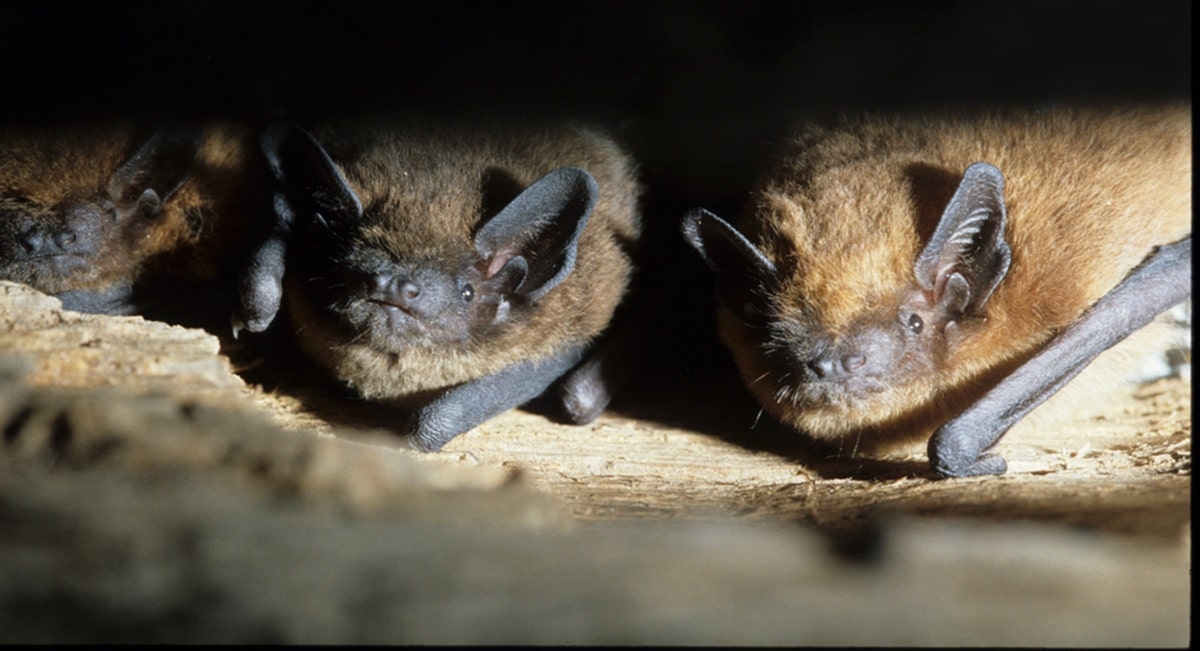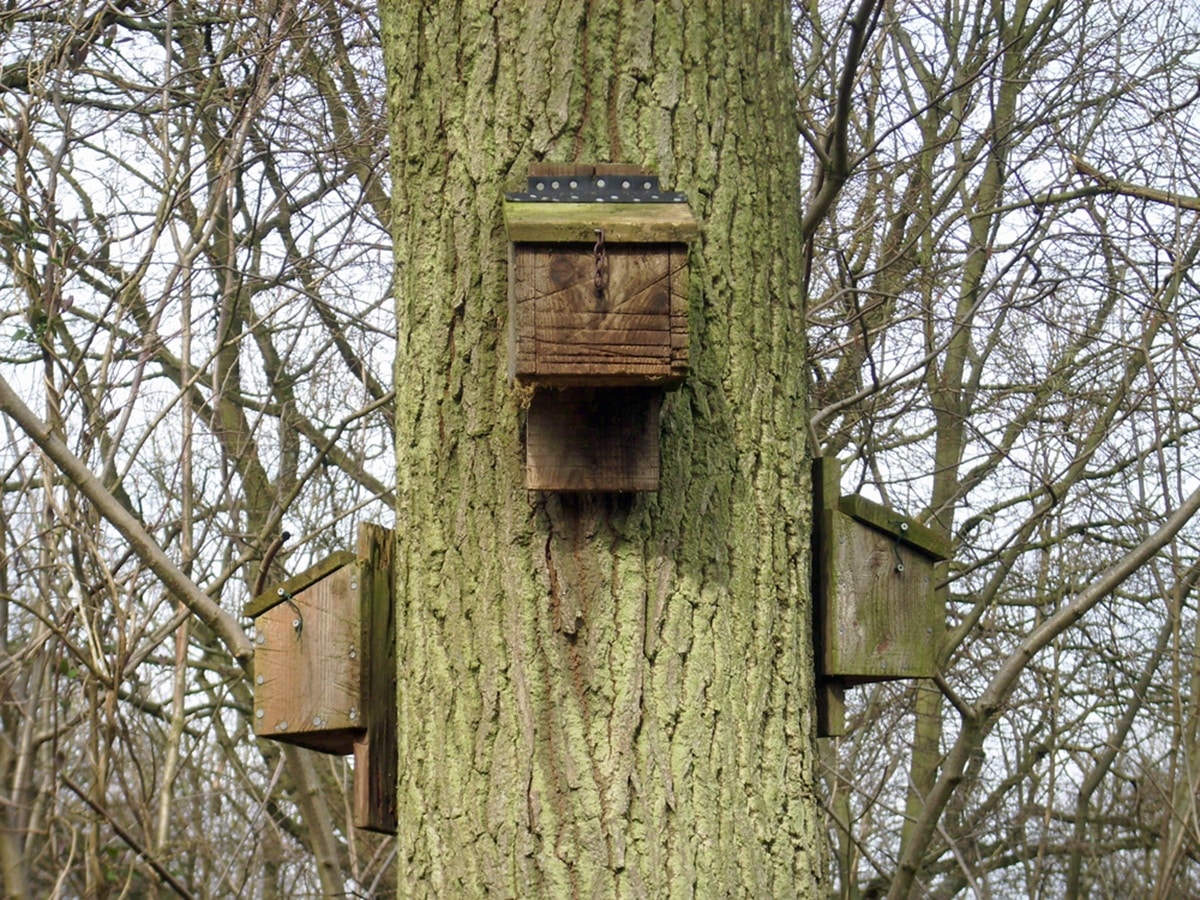A wealth of potential Bat Roost sites in this North West city
As one of the UK’s major urban centres, Manchester’s blend of historical buildings, canals, parks and post-industrial landscapes provides a wide array of habitats that support native wildlife – including several species of bats.
From the red-brick Victorian terraces of Chorlton to the tree-lined banks of the River Irwell and the urban woodland of Heaton Park, the city offers many valuable roosting and foraging opportunities. For these reasons, a bat survey in Manchester is often a necessary part of the planning process when development has the potential to affect bat habitat.
Bat Roosting Opportunities
Bats in Manchester are commonly found roosting in loft spaces, under roof tiles, in bridges, trees with cavities, and older structures such as barn conversions that offer cracks, gaps or sheltered areas. Bats are sensitive to disturbance and choose roosting sites based on warmth, safety and accessibility to nearby feeding areas.
In an urban environment like Manchester, linear features such as rivers, railways, parks and tree lines are used as foraging and commuting routes. This means that even small-scale works, such as a roof renovation, loft conversion, or removal of a mature tree, can necessitate a bat survey in Manchester to assess the impact on protected species.

Daubenton’s bats.
Relevant Legislation Protecting Bats
Bats are strictly protected by UK legislation under the Wildlife and Countryside Act 1981 and the Conservation of Habitats and Species Regulations 2017. It is an offence to deliberately capture, injure or kill a bat, or to damage or destroy its roost or obstruct access to it – regardless of whether bats are present at the time.
As a result, planning authorities in Greater Manchester, including Manchester City Council and neighbouring boroughs, frequently require a bat survey to support planning applications where potential roost sites may be affected.
Natural England oversees protected species licensing across the country. If development work is likely to disturb bats or lead to the loss of a roost, a European Protected Species Licence (EPSL) must be obtained before the work can proceed legally. This requirement makes early ecological advice crucial, particularly in areas like Manchester city centre, where bat activity is relatively widespread and often underestimated.

Bat Conservation in Manchester and North West England
Bat conservation efforts in Manchester are supported by national organisations like the Bat Conservation Trust as well as local groups such as the South Lancashire Bat Group and the Greater Manchester Ecology Unit. These organisations help raise public awareness, monitor bat populations and provide support in the protection and rehabilitation of bats. Through education and practical conservation work, these groups contribute significantly to the understanding and safeguarding of local bat populations.
Bat species including common pipistrelle, soprano pipistrelle, noctule bat, whiskered bat, brown long-eared bat and Daubenton’s bat are all present in the Manchester area, from the city centre to the suburbs. Each species has different habitat preferences and roosting behaviours, but all are protected under the same legislation. Developers must therefore consider these ecological sensitivities, especially when working near woodland, watercourses, heritage buildings, loft spaces or other features with high bat roost or insect feeding potential.
When is a Bat Survey in Manchester required?
When a proposed development site may impact buildings or trees that offer potential bat roosting habitat, a bat survey is often needed in the first instance before planning consent will be granted by local authorities. This requirement can arise during a Preliminary Ecological Appraisal or after an initial site visit by a planning officer or architect. If bat presence is suspected, a preliminary roost assessment will be needed.
Preliminary Roost Assessment (Phase 1)
The Preliminary Roost Assessment is typically the first step in the bat surveying process. It must be conducted by a licensed ecological consultant who carries out a desk study followed by an inspection of the development site in daylight hours for field signs of roosting bats, bat presence or resting places for bats. This internal and external inspection looks for evidence such as bat droppings, feeding remains, scratch marks, or features that could serve as bat access points. If the Preliminary Roost Assessment indicates a likely absence of bats, no further survey work will be needed.
Bat Emergence and Re-Entry Surveys
If there is evidence of roosting bats or if the structure has moderate or high suitability for a bat roost, further bat activity surveys will be required in the next steps of the process. Bat Emergence and Re-Entry Surveys can only be undertaken by bat surveyors at certain times of the year – the summer months between May and September.
Bat emergence surveys are conducted at dawn or dusk to observe bats emerging from or returning to their roosts. Potential entry and exit points on buildings will be monitored by licensed ecologists using specialist equipment including bat detectors to capture echolocation calls, thermal imaging cameras, and night-vision tools to gather accurate data on bat species and population numbers. The findings from this bat scoping survey are key to informing planning decisions and determining appropriate mitigation.
Producing a Bat Survey Report
Once all bat surveys are complete, the ecological consultant will compile a report detailing the survey findings and providing evidence-based recommendations. If bats are not found and the site has low potential for hosting bats, the report will support an application for planning permission.
Where roosting bats are present or the site offers high roosting potential, the report will set out suitable mitigation measures and confirm whether an EPSL is required. The report is submitted to the local planning authority as part of the application process to demonstrate compliance with wildlife legislation.

Mitigation Strategies and Licensing
When roosts are identified, mitigation measures may be necessary to reduce any adverse effects of development. These can include timing works to avoid the bat breeding season and the winter months when hibernating bats could be disturbed; incorporating bat roosting features into new buildings, or installing a bat box.
If the work will disturb a roost or cause loss of habitat, a European Protected Species Licence is needed. Our ecological consultants can manage this process from start to finish, preparing all supporting documents including method statements, ecological impact assessments, and habitat enhancement proposals to maximise the likelihood of a successful planning application.
Professional Bat Survey Services in Manchester
Our experienced ecology consultancy delivers a full range of bat survey services in the Greater Manchester area and throughout the North West and North Wales, from the first stage preliminary roost assessment to dusk emergence surveys and dawn re entry surveys and mitigation strategies. Our ecological consultants have many years of extensive experience and support developers, architects, planners, and homeowners with ecological guidance at every stage of the project.
Our licensed bat surveyors are experienced in dealing with a wide range of sites, from suburban properties and heritage assets to large commercial developments. We understand the planning requirements specific to Manchester and Greater Manchester and work efficiently to deliver high-quality reports that meet the expectations of local planning authorities.
Other Protected Species Surveys
We also provide other types of ecology surveys and protected species surveys such as badger surveys and great crested newt surveys. Whether your project involves tree works, loft conversions, or the refurbishment of older buildings, we provide a fast, professional and cost-effective service to help you meet your ecological responsibilities and keep your project on schedule, from the first stage to attaining planning permission.
Obtain a Free Quote for Your Bat Survey in Manchester
If your development project may require a bat survey, contact us for a free quote, or use the telephone number above. Simply send us the site address and a description of the proposed works, and we’ll advise you on whether a survey is necessary, and the bat survey cost. If needed, we’ll arrange a visit and support you through the planning journey to project completion.
By working with our experienced ecology team, you can ensure your planning application proceeds smoothly while protecting one of the UK’s most legally protected and ecologically important species.
